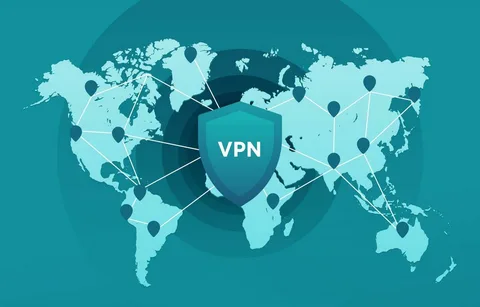I always thought that a Virtual Private Network (VPN) made me invisible on the internet. Be it my Internet Service Provider (ISP), network admins, or anyone else, no one would know my activity on the internet when connected to a VPN.
Unfortunately, I was wrong, as VPN does not offer complete anonymity. For instance, a VPN would hide my activity on a website, but my ISP would still know which websites I’m visiting. Or how much data I’m using on those websites.
Even though knowing the reality was a heartbreak for me, it opened my eyes. After this, I researched and found some common myths about VPNs which I’m going to share below.
Table of Contents
Free VPNs Are as Good as Paid Ones
Most VPN users might believe that there is no difference between the free and paid ones. However, if you understand how a VPN works, you’d know that there is a huge difference between free and paid ones.
For instance, a free VPN may only offer limited servers, which are often overloaded with traffic. Connecting to such servers can be difficult, and not to forget that your internet speed may be affected by slow VPN servers.
On the flipside, a paid VPN usually offers hundreds of high-speed speed servers, spanning across different countries around the world.
Also, some free VPNs use obsolete security measures and encryptions to protect user data. And, not to forget that most free VPNs display ads, and it’s their major source of income. As most of these ads may be personalized, there’s a chance that a free VPN steal users’ data and sell it to third-party advertisers.
In short, both VPNs are poles apart, and there is no way free VPNs are as good as paid ones.
A VPN Will Always Slow Down Your Internet Speed
It’s true that sometimes, a VPN can slow down your internet speeds.
But, will it happen every time? No.
To understand why a VPN sometimes affects our internet speeds, let’s first analyze how it works. A VPN creates an encrypted tunnel between a device and a server. All incoming and outgoing data moves through the encrypted tunnel and then heads to its destination.
In this process, our data has to cover an extra step of passing through the encrypted tunnel and hence, requires more bandwidth. So, when the internet connections fail to offer the extra bandwidth, we can experience slow internet speeds.
However, the internet speeds may not drop if we’re connected to a high-speed connection. Speaking from experience, my previous internet connection always slowed down, even when I was connected to a low-traffic VPN server.
But I subscribed to high-speed and reliable Spectrum Internet, and haven’t faced any slowdowns, even when connected to a high-traffic server on a free VPN. So, a VPN can slow down your internet, but it majorly depends on how good and reliable your connection is.
VPNs Are Used by Bad Actors for Illegal Activities
Most bad actors or cybercriminals may use VPNs to conduct illegal activities on the internet. And, their primary purpose can be to hide their identity via a VPN. However, to associate a VPN with bad actors and illegal activities would be an injustice.
It’s because any person who is concerned about their data privacy and security can use a VPN.
Besides privacy and security, an average Joe can also use VPNs to access geo-restricted content like shows, or movies banned in their country. And, not to mention that VPNs can be a pretty handy tool when connecting to public WiFis.
VPN is the Ultimate Security Tool
A VPN can indeed offer top-notch security to your device. But, to think of it as the ultimate security tool that will protect your device against any type of virus or malware is simply incorrect.
Most people might understand that a VPN alters your device’s IP address and assigns it a new one as soon as you connect to it. By doing so, your device becomes unrecognizable on the internet, and bad actors may not be able to pinpoint it.
But, even if you’re connected to a VPN and click on malicious links or ads, a VPN won’t stop viruses from entering your device. Or, if you knowingly share sensitive information like social security numbers, passwords, or bank details on the internet, then a VPN won’t be of any help.
Frequently Asked Questions (FAQs)
Are all free VPNs unsafe?
No, not all free VPNs are unsafe, as some free versions of paid VPNs can offer advanced security and encryption protocols.
Why should I use a VPN even if I have no data to protect?
The primary purpose of a VPN is to offer data privacy and security. But if you have no data on the device, then you can use a VPN to access geo-restricted content like movies, shows, or high-speed game servers.


